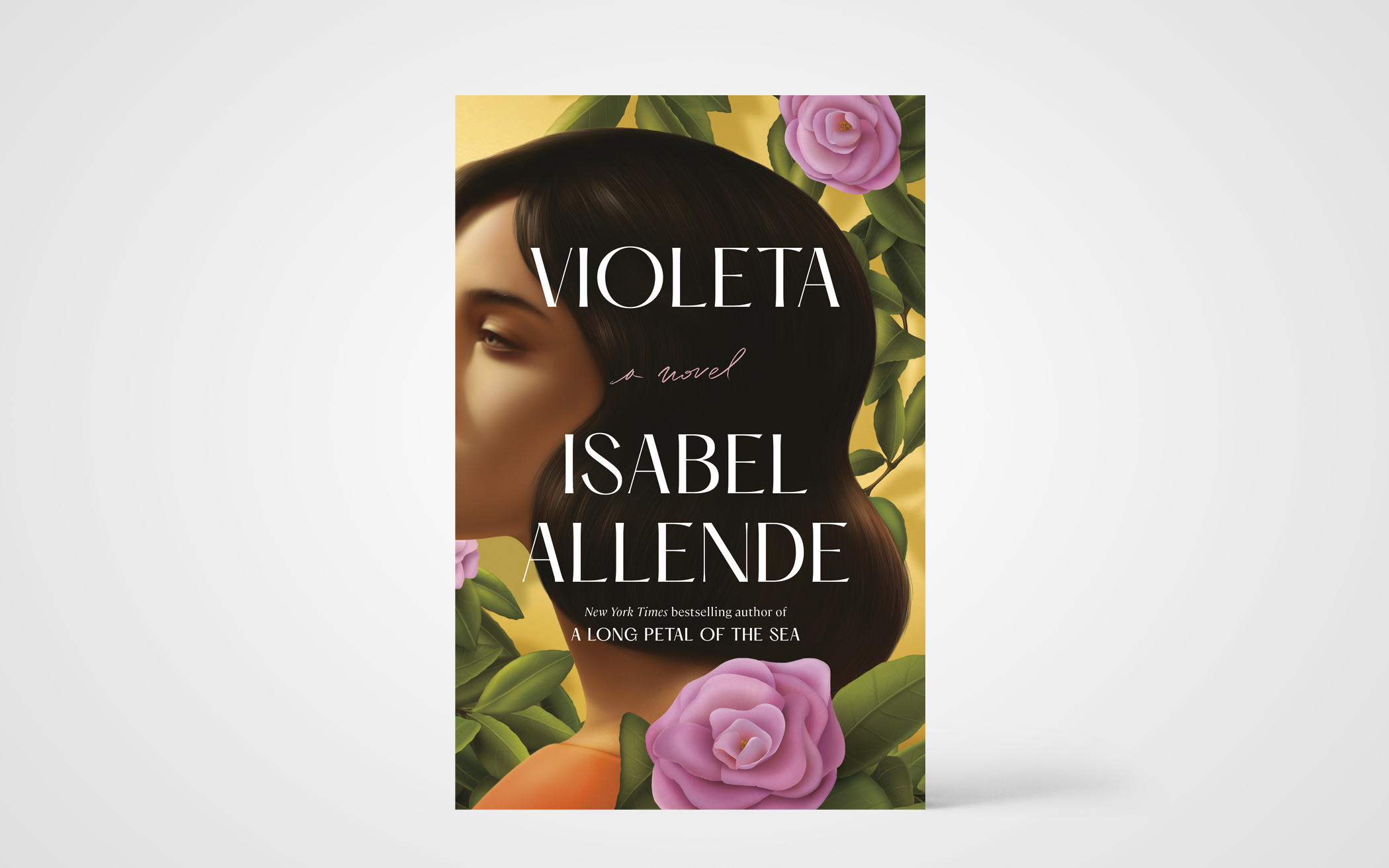I do love a good saga, and one by Chilean writer Isabel Allende? Even better. Violeta is my fourth Allende, and I knew from the opening pages that I would be swept away to South America and other places (in this case, Miami) and immersed in long-ago times.
Violeta spans 100 years, a full century of one woman’s life, loves, and losses. The novel is bookended by two pandemics, as Violeta Del Valle is born during the Spanish flu pandemic and dies during, but not necessarily of, the COVID-19 pandemic. There is a lot of life lived in between these two pandemics.
The entire narrative is a letter from Violeta to her grandson, Camilo, detailing a long life lived, if not perfectly, then passionately. After quarantining with her wealthy, well-connected family in the capitol city of an unnamed South American country (Chile is a safe bet), little Violeta is torn by tragedy and reversal of fortunes from her comfortable childhood to exile in the Patagonian wilderness. Here she grows to love not only the remnant of her family, but also the chosen family of servants and new friends. A giant, possibly intellectually disabled, teenager taken in by the family to do menial labor becomes her protector and the brother of her heart. Her Irish former governess becomes like a dear aunt or even mother figure to her. A Norwegian bird-watcher figures in. These side characters add richness and texture to a novel that can become a little too dispassionate at times as Violeta recounts her life.
As in most Allende novels, she delves into Chile’s 1973 coup, which destroyed the leftist government of Salvatore Allende (her real-life uncle) and resulted in the brutal dictatorship of General Pinochet. Despite her personal ties to these events, Allende always manages to peek into the hearts and motives of both sides of these political cataclysms and bring hard-won wisdom as she looks back.
Allende herself is 80 years old, so this novel in particular feels a bit autobiographical. Without spoiling the plot, some of Allende’s real-life losses are mirrored in Violeta’s. The author has said that the novel was also inspired by the life of her mother, Panchita.
Though this is not Allende’s best work (for me, so far, that would be In the Midst of Winter, set partially in Guatemala and which I read in Guatemala), Violeta bears her usual elegant use of language, comparative wholesomeness (there is no swearing or sex scenes, though characters do not live pristine moral lives), and a plot that carries you along from beginning to end like a rolling river. What’s missing here is her trademark magical realism, brought to these shores in her 1982 modern classic, The House of the Spirits.
It’s hard to know what Allende believes, spiritually speaking, but in this book, a beloved character finds and follows Jesus Christ in an authentic, beautiful way.
Violeta is Allende’s 21st novel. Could it be the last novel from one of the most widely read Spanish-speaking authors of our time? I would bet she has at least one or two more epics to share with her readers—at least I hope so. Violeta, or any of Allende’s books, are worthy reads during Hispanic Heritage Month, or any month at all. (Ballantine Books)
About the Author
Lorilee Craker, a native of Winnipeg, Man., lives in Grand Rapids, Mich. The author of 16 books, she is the Mixed Media editor of The Banner. Her latest book is called Eat Like a Heroine: Nourish and Flourish With Bookish Stars From Anne of Green Gables to Zora Neale Hurston.

